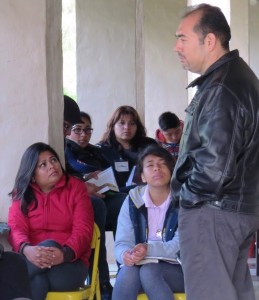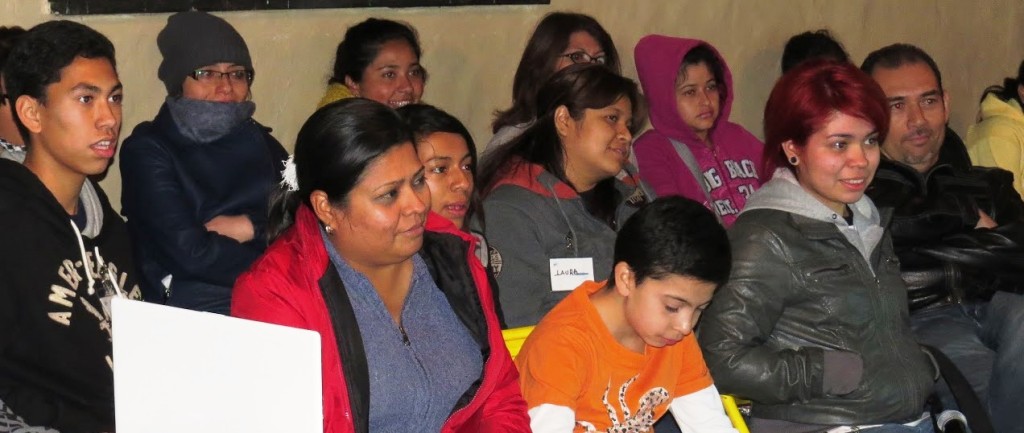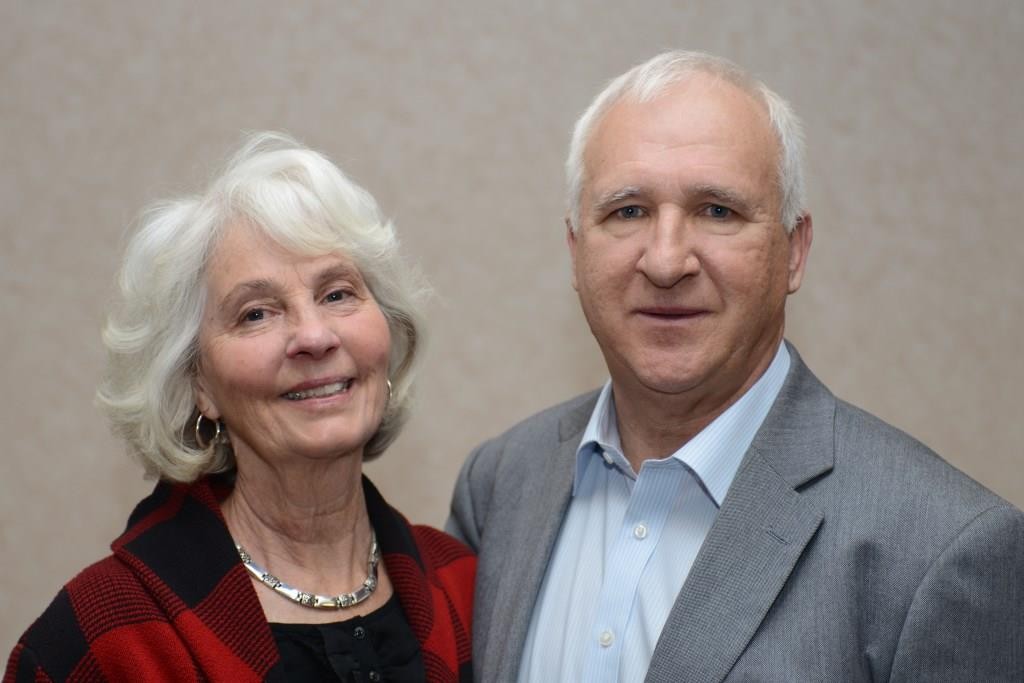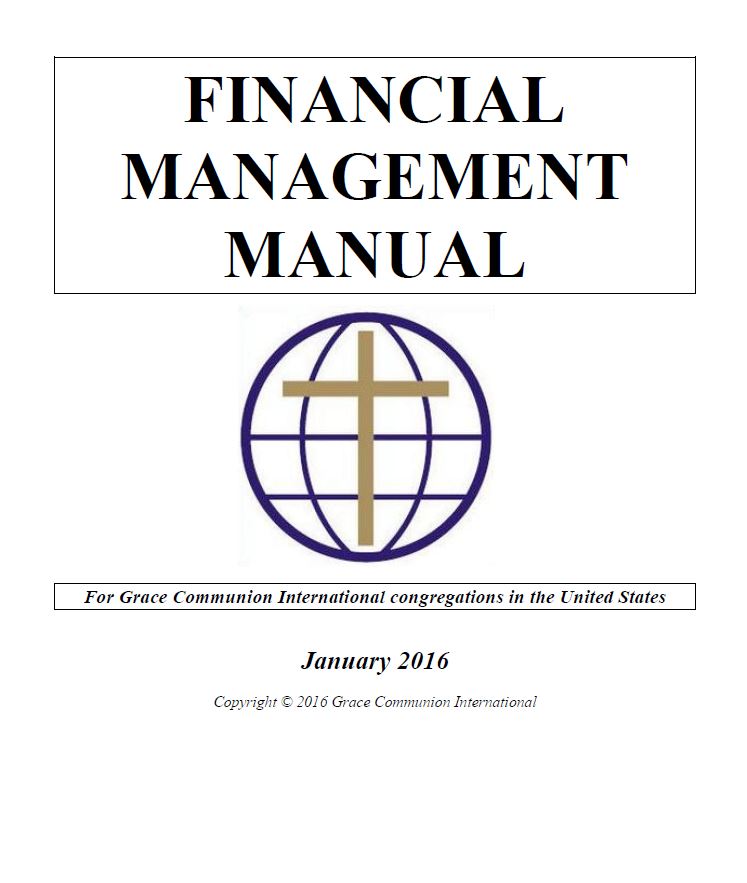Dear Brothers and Sisters,
 Fred Sanders, professor of theology at Biola University, wrote a humorous blog post in 2009 that assigned alternate meanings to the word GRACE used as an acronym to stand for different Christian groups and perspectives. Though it’s a bit esoteric (and sometimes off-center), I’ve quoted below part of his post, hoping to bring a smile to your face and then to make a point.
Fred Sanders, professor of theology at Biola University, wrote a humorous blog post in 2009 that assigned alternate meanings to the word GRACE used as an acronym to stand for different Christian groups and perspectives. Though it’s a bit esoteric (and sometimes off-center), I’ve quoted below part of his post, hoping to bring a smile to your face and then to make a point.
What does GRACE stand for?
- Existentialist: Genuine, Real, Authentic Christian Existence
- Catholic Mysticism: Gazing Raptly At Consecrated Eucharist
- Emergent church: Generational Resentment Against Conservative Evangelicals
- Arminians: God Respecting Autonomy Conditionally Elects
- Theonomist: Gospel Requires Absolutely Crushing Enemies
- Pentecostal: Glossolalia Received After Conversion Experience
- Evidentialist: General Revelation And Convincing Explanations
- Charismatic: Gombala Ramazoody Alleluia Chombalahombala Essanahanashanahana
- Cessationist: Generally Renouncing All Charismatic Experiences
- Socialist: Government Redistribution Allows Communal Economics
- Presuppositional Apologetic: Gospel Repentance Accomplished, Circularity Ensues
- Feminist theology: Gender Revolution Anticipates Church Evolution
- Open Theist: God reconsiders, And Cooperates Exquisitely
- Eastern Orthodoxy: Greek, Russian, Antiochene Cultural Expectations
- Anglo-Catholic: Getting Ritualistic After Cranmer’s Execution
- Roman Catholicism: Getting Right Archbishop Catholicizes Everything
- Fundamentalist: Gotta Really Agressively Confront Ecumaniacs
- Calvinists: God Rejects And Conversely Elects
- Dispensationalists: Getting Raptured After Charting Endtimes

This list makes me chuckle, though neither Sanders nor I mean any disrespect. We may not agree with all these groups and perspectives on every point of doctrine and practice, but all authentic Christians agree we are saved by grace and called to share this life-changing gospel with all people everywhere.
As a church, GCI proclaims that Jesus’ life, death, resurrection and ascension is good news for all. We provide congregations where people are welcomed into fellowship and helped to grow in our Lord’s grace and knowledge through worship and sharing in Jesus’ ongoing works of service, in the Spirit, to the world.
That is what we are about—what we stand for, and I thank God that, more and more, we are known for what we are for, rather than (like the cartoon) what we are against.
As our name (Grace Communion International) indicates, we are for sharing God’s love for all people all over the world, and bringing them into communion with the Father, Son and Holy Spirit. We desire people everywhere to grow in right, loving relationship with the Father, through the Son, in the Spirit. Rather than to be known for what we oppose, we aspire to be known for what we are for—actively sharing God’s grace, forgiveness, inclusion, hope, love, faithfulness, communion and mercy. This is our aspiration as a denomination, as congregations and as individuals.
In all things, we seek to be for what God is for. What is that? In John 3:16 we learn that God so loved the world that he sent his one and only Son. Then in John 3:17 we learn that God did so not to condemn the world, but to save it. God, in Christ, is for us (all of us!)—that is the powerful lesson we rehearsed in the recent Advent/Christmas season. God’s desire is that we live in loving relationship with him and with each other. In this understanding we do not presume that we have all knowledge or have obtained perfection, but like Paul, we press forward, motivated by our “upward call” in Jesus (Philippians 3:12-14 ESV).
Of course, being for certain things means God is against whatever opposes those things. And we should follow suit, just as we are shown in Scripture. However, we ought not switch priorities—God is against what opposes his purposes in order to protect and bring about what he is for. He rescues and redeems us from sin and evil (which he is against) in order to accomplish what he is for, namely, making us his glorified children who share in Jesus Christ’s own sonship and communion with the Father by the Spirit. Were God not for something, there would be no reason for him to be against anything. This is the trajectory of Paul’s thought in Romans 5 where he acknowledges the fall, our sin, and the need for forgiveness and reconciliation. But then he uses the phrase much more (four times for emphasis) to show that we are saved for something: “Much more,” he writes, by receiving “the abundance of grace and the free gift of righteousness,” we will “reign in life through the one man Jesus Christ” (Romans 5:17). Karl Barth makes a similar point in Church Dogmatics:
Divine grace is primary and the sin of man secondary, and…the primary factor is more powerful than the secondary…. We cannot contradict the order which [God] establishes. We are forbidden to take sin more seriously than grace, or even as seriously as grace. (The Doctrine of Creation, part 2, vol. 3, 41)
It is my continual prayer that as a church we be known for being a safe place where people find love, hope, recovery and healing from bad doctrine, church abuse and infirmed teaching and counseling. I pray we be known as a church that fulfills John 13:35—known for our love for one another. I also pray we be known for joyful participation in the work of God—the work Jesus defined this way: “The work of God is this, to believe in the one he has sent” (John 6:29).
What are we for? We are for God, who is for his people, just as we see and hear in Jesus. Our work is to introduce people to Jesus, helping them trust him, receive his forgiveness and share in his own faith, love, hope and joy. We are for following Jesus, the head of the church (Colossians 1:18), as he through the Spirit and the Bible (2 Timothy 3:16-17) leads us to participate with him in fulfilling the Father’s mission.
We are for living and sharing the gospel, giving birth to all kinds of churches in all kinds of places for all kinds of people. That is our motto, our mission/vision, and our passion. I pray it is our constant focus.
May we be known for what we are for,
Joseph Tkach




 Reflecting on the camp experience, Heber wrote this note:
Reflecting on the camp experience, Heber wrote this note:


 1. Church Administration Manual
1. Church Administration Manual 2. Financial Management Manual
2. Financial Management Manual